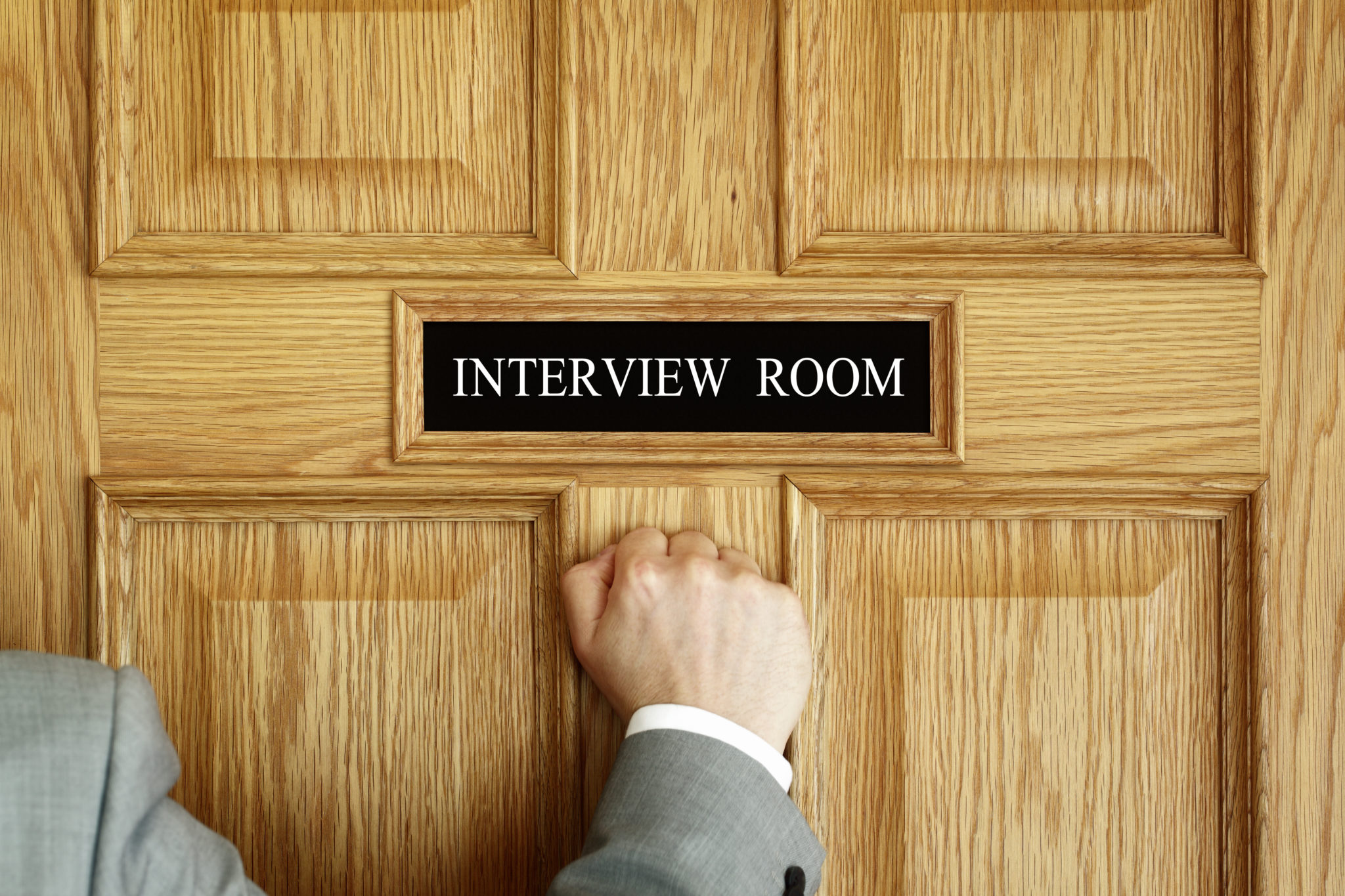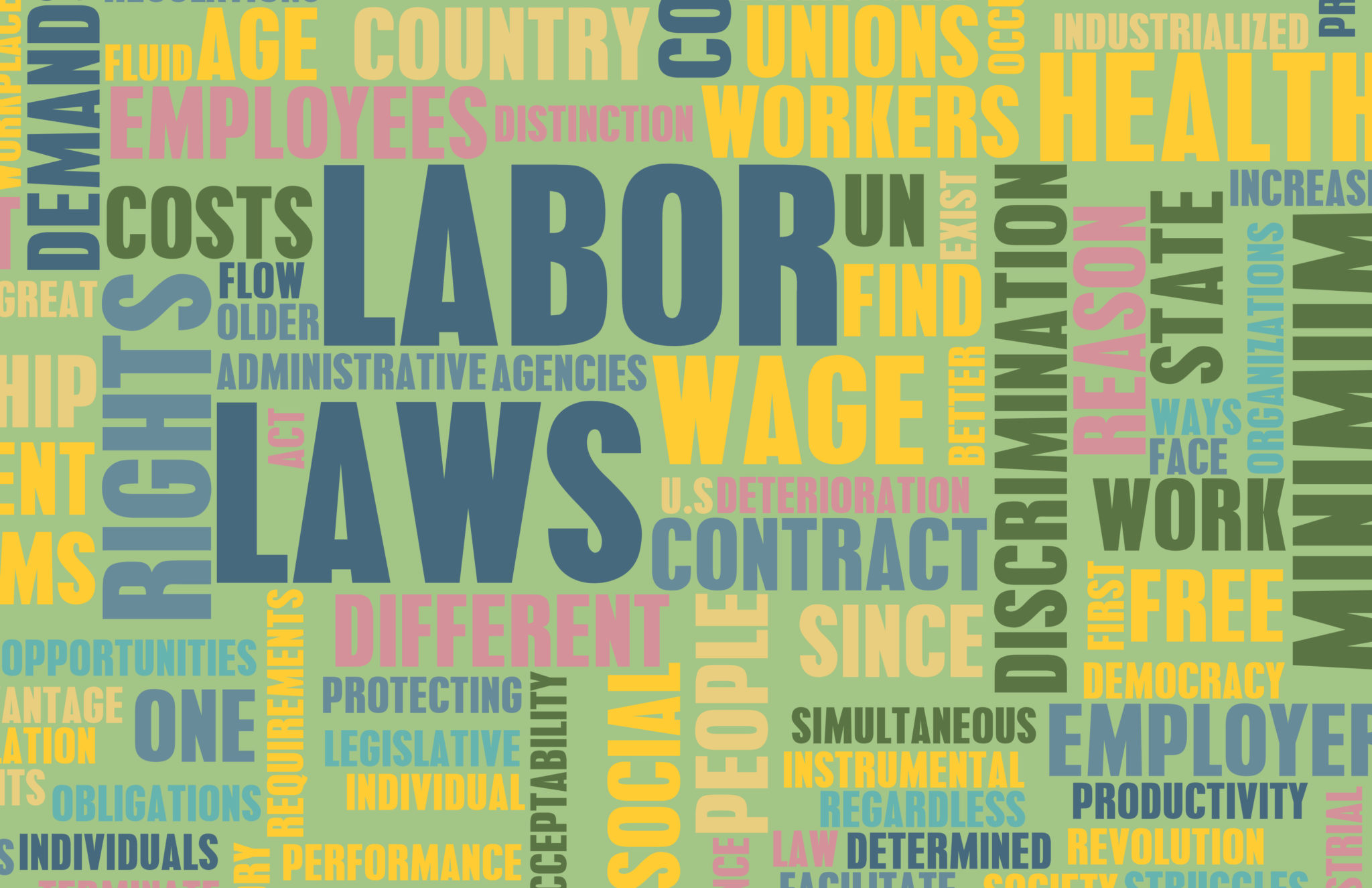The average job seeker spends more time planning a Sunday afternoon BBQ than preparing for a job interview. That’s why with a little effort now, you can feel confident walking into your next interview knowing that you’re better prepared than any other applicant. To help you do this, RWD career experts have compiled a huge selection of practice job interview questions along with expert responses that are guaranteed to impress the interviewing manager.
How to Use This Guide
To get the most out of this guide a little role-play is needed. For each job interview question, first read the explanation on what an ideal response should be. Next, when taking into account the industry/profession you’re applying to, compose your own personal response, referencing real life anecdotes and examples from your professional career. If possible, have a friend practice with you. Your goal should be three things:
- Identify useful/important experiences that can be drawn on and referenced to help answer job interview questions
- Formulate engaging, accurate and impressive responses to each specific job interview question
- Practice responding in a clear, articulate, well structured and positive manner
Take your time to think about specific experiences that will help you formulate a great response, taking notes if needed. The reason why so many people do badly in interview isn’t that they’re unable to give a good answer, but that they don’t have time to think about what the best response would be. By preparing and practicing your responses now, you won’t feel like you’ve been put on the spot next time you’re in the interview room.
Table of Contents (CLICK BELOW TO NAVIGATE PAGE)
- Common Job Interview Questions
- 17 Tough Interview Job Questions
- Student & Entry Level Job Interview Questions
- Prohibited Job Interview Questions
- Career Changer Job Interview Questions
Common Job Interview Questions and Answers
While researching this comprehensive list of job interview questions and answers, RWD discovered that most common interview questions fall into the following categories (click to navigate):
- QUESTIONS ABOUT THE JOB
- YOU AND YOUR CAREER
- STRENGTHS & ACCOMPLISHMENTS
- PROBLEM SOLVING SKILLS
- PERSONALITY & INTERPERSONAL SKILLS
- PERSONAL INTERESTS
- POTENTIALLY DIFFICULT QUESTIONS
QUESTIONS ABOUT THE JOB
“Why do you want to work in this industry?”
Instead of answering with a half-hearted response such as you like the salary or that all of your friends work in the same industry, you want to create a story explaining what sparked your interest in this particular field. This may be due to previous experience, reading articles or news reports, talking with friends and your own independent research. Build up a picture from then until now – an employer will certainly to be happy to hear your progression of love for their industry and it will make you unique in your interviewer’s eyes.
“Why do you want to work at this company?”
This is your chance to blow your prospective employer’s trumpet. Answers can vary from the awards they have received, their mission objective and plans for the future, the way they treat staff and customers, to any unique pieces of information you may have found on the Internet or in trade magazines. It could also be that you just personally enjoy their product or service. If so, mention it and let your passion show.
“What are the skills that you think are most critical for this position/job?”
It is important to not list any old generic skills but to pinpoint two or three skills that are linked to the job. For example, if you want to be a customer service representative, highlight with concrete examples from your previous experience your fantastic communication skills and your committed problem solving skills.
“What weaknesses do you have that could be detrimental to this position?”
This can be responded with a clever technique by asking the interviewer what their anxieties are about your possible weaknesses. By turning the question around you can gain more information and respond accurately and positively.
“If I hired you today, what would you achieve first?”
Use this question to mention any known projects that are running or will be run in the company. You could demonstrate your knowledge of the industry and the key skills you can bring to a project. Also try to connect your first accomplishment to the wider objective of the company, be forward thinking.
QUESTIONS ABOUT YOU AND YOUR CAREER
“Where do you see yourself in five years?”
You don’t have to be particularly specific on dates or times and positions but instead how you hope to be challenged and continually able to develop your skills both for yourself and for the company. Furthermore, focus on the specific field you are applying to.
“What are your plans in the longer term?”
Due to the unpredictable nature of the economy it would be difficult to plan your career out entirely, instead, focus on any accomplishments you want to achieve. You may want a position in management or a particular department; it is fine to mention that.
“Why are you leaving your current role?”
To tackle this question you should highlight your perseverance and your desire for a challenge. Explain that your previous company lacked focus or career progression. Moreover, enlighten the interviewer with your need for additional responsibilities and your desire of a challenge.
“What are your salary expectations?”
Instead of spurting out an exact figure and instantly categorizing yourself, ask the interviewer what the scope of the salary is. Once done, ask them how your experience and qualifications match the average requirements for the position. Whilst doing this always try to aim as high as possible and remain positive about your credentials.
A professionally written resume will increase your chances of getting an interview by 40% – speak to a resume expert for a free consultation today! Call toll free 1866-706-0973
YOUR STRENGTHS AND ACCOMPLISHMENTS
“Explain as to why I should I hire you.”
The key is to have a unique selling point matching the requirements of the position. Although you can refer to your resume, it is recommended you reveal your knowledge of the company or industry. Moreover, mention any groups you are a part of and any experience you have with the company’s products or services. Link yourself to the company vision; the employer wants to know you will be with them for the long term.
“What are your strengths?”
Focus on one or two skills linked to the job description. Be exact about your skills and describe in detail. For example, you may expose your ability to negotiate and control budgets; this would look great for a role as a product buyer for a company.
“Describe a pioneering improvement you started.”
Be concise and use an example from your professional background. You may mention a project you had started or had taken the initiative to suggest improvements once a project was underway.
“What style of leadership do you have?”
Try to take the “lead through example” response. Think of times you have led a group, a team, or people you were responsible for. Remember, you can always refer to experiences outside of your professional experience, such as, family, hobbies and societies.
“Explain to me one of your main accomplishments.”
In regards to this question try to have a beginning, a middle and an end. Tell a brief yet effective story on how you accomplished a task. Prepare a specific example and sell yourself.
YOUR PROBLEM SOLVING SKILLS
“Expand upon an extremely difficult problem you had to deal with.”
Develop the problem beforehand and then examine the wider picture focusing on key actions that aided in dealing with such a difficult problem. Distinguish why this problem was so difficult and how you were able to remain level-headed and professional in the face of adversity.
“Depict a problem you were able to solve using a process.”
Outline each step you used to solve a problem. For example, as a retail consultant you may have noticed that a company’s tool sales were particularly low for one of the products, a popular screwdriver, yet the other type of generic low cost screwdriver on sale was selling like hotcakes. To increase sales you assessed the revenue of both products over a regional shop-to-shop basis, implemented a price increase for the generic screwdriver whilst reducing the price of the high end screwdriver. Furthermore, you increased marketing for the generic screwdriver to offset the low sales for the popular screwdriver. Once you describe the process you can give the result, that of, both screwdrivers increasing in sales.
“Inform me about an unexpected problem you failed to deal with.”
It is OK to admit your mistakes as long as you can show you have learned from them. An interviewer will appreciate your modesty and it will show your self-awareness. Mention what you would have done differently in a specific situation, what you would look out for in the future and how you have improved from the experience.
YOUR PERSONALITY AND INTERPERSONAL SKILLS
“What was you relationship like with your previous employers?”
If you left your most recent employment on bad terms, don’t mention it. An interviewer is looking for a future employee who can form a strong cohesion with staff from all levels. Hence, mention that you worked well with management and that you learnt a lot from them. Moreover, if the interviewer is aware you may have left on bad terms explain that you require management who can continually give clear instructions and can communicate well, that’s why you want to apply to this company.
“Describe a time when you helped a coworker”
This question relates to your leadership and team working abilities. Showcase your adaptability to work and help others at any time. Certify how your skillfulness and knowledge aided other people to complete a task. For example, you may have helped a new employee learn a new design package such as Adobe Illustrator to design a promotional poster for a new cleaning product.
“What type of people are conducive to your great work ethic?”
Not to stumble on this question, state that you work will with all different types of personalities. You could even go as far to say you enjoy the challenge of difficult people and that due to your interest in others you can bring out the best in everybody.
QUESTIONS ABOUT YOUR PERSONAL INTERESTS
“What literature do you read?”
If you don’t read many books, do not worry. Be prepared and do some research on some of the key books of the industry you are applying to. Read their synopsis; find out the author and any general conclusions. You could also refer to trade magazines, journals or Internet articles of some of the thought leaders in the field. Other places worth noting could be key people you are subscribed to in your Twitter account.
“What do you do in your free time?”
This question allows the interviewer to understand how comprehensive you are. Try to link your hobbies and interests to the role by linking any skills you may have learnt from your activities.
DIFFICULT QUESTIONS
“Have you ever been terminated from previous employment?”
If you’ve never been fired it’s simple to answer. But if you have been fired you’ll need to be prepared to discuss the situation in detail and possibly answer a series of follow up questions. The first type of firing is due to factors out of your control such as company liquidations and bankruptcy. These types of events will be met with understanding by the majority of interviewers. However, if you were fired due to a problem you may have caused, the best case is to be honest. You will have to put more effort into the interview to explain and persuade the interviewer you are the correct candidate for the job. On the positive side, your negotiation and persuasion skills will be at the fore, which may look good in the interviewers mind as well as your unwavering passion to grasp the position. If you decide to hide the truth there may be the possibility that an employer may find out and offer an immediate dismissal, so start as you mean to go on.
“Why have you shifted from job to job?”
Job-hopping is becoming more and more common in the fragmented economic realm that we work in. To profess your commitment for the company explain that you moved jobs to learn new skills, seek new opportunities and expand your commercial awareness.
“You stayed in your previous employment a long time, why?”
An interviewer may ask this question with the worry that you have become too comfortable in your role and lack the drive to move up, take new responsibilities and face new challenges in a company. Make sure you pinpoint that you advanced in your previous company and took on responsibilities and challenges. If your job title didn’t change for a long period, think laterally and show how you expanded your responsibilities, becoming an expert in your role.
17 Tough Job Interview Questions and Answers
Sometimes a job interview question can be so misleading, ambiguous or tricky that you may not know the answer immediately. In these situations it is genuinely OK to admit you don’t know. There are certainly things you don’t want to say, but in general when faced with a tough job interview question, the best response is to explain that you’ll be able to give an answer if the opportunity arises again. Here are 20 questions that may leave you stumped – practice formulating a great response to each of these and you’ll have nothing to worry about at your next job interview.
1. “Tell me about a project you were disappointed with due to your own actions”
This question focuses on your problem solving abilities. State the assignment and what you actually did. Then reflect on how you could have done it differently with better performance. Maybe you could have led a team in another direction or maybe you could have managed your time more effectively. What’s most important is to highlight the fact that you quickly learned from this experience and have since performed better because of it.
2. “If i said to you right now, the interview is not going well, what would you do?”
Stay calm and composed. It’s important you remain cool, objective and analytic. Probe deeper with the interviewer as to which particular aspect of the interview they found weakness. Do not start making excuses, but instead mention your willingness to improve and ask if they would allow you to take on these improvements immediately. This interview question is to understand how willing you are to learn from your own immediate experiences.
3. “Elaborate on an experience in your previous employment that was most difficult”
This is another tough question that is designed to asses your problem solving skills. You may have had to work with a difficult colleague, or perhaps you once had to reach continually increasing, unrealistic sales targets. Tell a brief story and explain what you did, outlining the steps you took to overcome a difficult experience.
4. “If this were your first annual appraisal, what would i be saying about you at this moment?”
Put yourself in your own shoes in the future. What would you like to have achieved? Mention this to the interviewer saying that they would be praising you on your determined focus and ability to take on responsibilities. Link your skills to the position, aligning your goals with those of the company you’re applying to work at.
5. “Give an example of a time when you were asked to accomplish a task but weren’t given complete details. How did you resolve the problem?”
You could demonstrate your lateral thinking, problem solving abilities, initiative and your ability to ask questions to senior staff when needed. You could also highlight your skills of information deduction to form a logical conclusion.
6. “Depict a time when you failed to resolve a conflict”
It’s best not to mention a personal conflict or a conflict that directly involved you. Maybe there was a company downsizing or a disagreement between staff members in a meeting. Try to keep the conflict lighthearted, if possible. Also, elaborate on what you learnt from the conflict.
7. “How have you dealt with criticism of your work?”
Mention how you thrive on constructive criticism to progress in your field. Highlight your professionalism and answerability to your own tasks and projects, and the steps you took to improve. It’s best to try and talk about an event that was not too drastically bad. The interviewer wants to know you can discern between your correct and incorrect actions.
8. “What about your previous job would you not want to do again, name 2 or 3 points”
It’s fine to highlight a few duties you didn’t particularly enjoy but carried on with anyway. This will show that you are a capable and determined employee who can work in a variety of situations to achieve company aims and objectives.
9. “What upset you in your previous employment?”
Be prepared to reveal your professionalism by controlling a situation that was difficult. Maybe the management was indecisive but you were able to calmly persuade them to make the correct decision. This is a great opportunity to give an example of how you were able to resolve a problem.
10. “Explain to me a failed project you were involved in”
Tough job interview questions are there for you to show your ability to turn the situation around. This is about learning from your mistakes and reflecting on improvements. Keep the example simple and straight to the point with less focus on any long-term damage, and more on how you saw improvements after the project was finished. You could speak about how you could have delegated certain tasks to others, allowing you to make better decisions.
11. “Tell me about a time when your boss was upset with your job performance”
Highlight your communication skills and how you were able to discuss a minor problem with your employer. It’s best not to have blamed others but accept your responsibility and how you came to a resolution. A problem can be as small as suggesting a self-assessment of your work after your work time or accepting that you are only able to complete so many tasks at once. Show yourself in a good light and how you have learned from it.
12. “Recount a time where you were disregarded for a position you felt you deserved”
Instill confidence in the employer by stating that you are aware of your own qualities and that you are sure that your achievements in the workplace will require the promotion it deserves.
13. “Tell me about a time when you have had a conflict with a colleague”
Try to contrast your good qualities with that of an employer whose qualities are much different from your own. Refrain from getting personal and always remain professional and rational with your incompatibilities. For example, you may mention that a colleague lacked the communication skills to complete any project you were involved in. Emphasize how you effectively used your interpersonal skills to engage the employee in the project, assigning them tasks to their abilities and empathizing with them at all stages of the project.
14. “Describe your least favorite manager or professor”
This is no time to go into a tirade about the finer points of your distaste for a previous employer. The interviewer is trying to find out if you would actually speak negatively about them, so don’t do it. Instead, remain positive, and explain that the skills or attributes lacking in your previous employer has allowed you to see where you won’t go wrong in future if you were in their position.
15. “Who’s the most difficult employer you’ve ever had, and why?”
On the same note, turn it around and explain what you learned from other employers. You could also mention how difficult experiences really advance you as a person.
16. “Give an example of your time management skill in a work setting”
There are many examples of using effective time management. Highlight the example and describe how your time management helped increase sales, boost productivity or allow projects to be finished on time and within budget. An employer is looking for an employee who can boost revenue and/or reduce costs and time management is a fundamental driver to this.
17. “Would you be able to work more hours outside of your contract if necessary?”
You may feel it’s not your duty to work outside of company hours but showing your willingness to devote your extra time to the company will certainly show you as a dedicated candidate who can see the wider picture. That said, remain realistic and don’t promise anything you cannot fulfill.
Student & Entry Level Job Interview Questions
“Why are your grades lower than average?”
Don’t worry about this question too much; if you have applied to the job and fulfilled the application requirements then this question is actually looking at something else. The interviewer is trying to find out how you deal with difficult and critical situations. Remain confident in your education and go on to highlight some great achievements you have had, such as projects you have completed and awards or honors you may have received. If you don’t have a college degree check out our advice here.
“Why did you choose the major that you studied?”
Link your major with your current employment. State that your major was a mix of both personal interest and that the course offered skills and/or knowledge suitable to the position you are applying to. An interviewer will be impressed that you were thinking about their company or industry before you started your major.
“Tell me about a course or class you took that you found particularly difficult”
You can mention that you thrive on challenges and that the course was sometimes difficult but that you thoroughly enjoyed it and learnt a lot from it. You could also go onto to say you expect to be challenged and would be disappointed if your next position contained little or no challenges.
Are you trying to write a resume with no experience? It can be tough, especially if you’re a student. Check out my article published on UnderCoverRecruiter.com – it’s full of useful advice that will help you win more interviews!
“Why didn’t you take part in more extracurricular activities?”
An employer wants to know you are a well rounded individual who enjoys pursuing your interests. If you didn’t partake in any extra-curricular activities think about activities you may have done with friends or family. Any activities which involve working with people or challenge your intellectual capabilities are acceptable.
“Since you have no experience in this industry, why do you think this position would be right for you?”
Discuss any books, journals, magazines or Internet articles you have read that have provided information about the field you are applying to. You may mention career services or internet conversations over interactive platforms such as Twitter, Facebook or LinkedIn as well as any knowledgeable television documentaries. You could also talk about any of your friends or family who has worked in the field. Finally, you could mention anybody higher up in the profession you may know or have contacted through email for advice. If you haven’t done this, consider doing it as networking may become an important part of your career progression.
Prohibited Job Interview Questions And Answers
Although equal-opportunity employment laws mean the job interview questions below are prohibited from being asked in interview, you may still face such questions. Not all managers are acutely aware of employment regulations, others may accidentally ask prohibited job interview questions just out of curiosity, or in a friendly manner. Regardless, you’re best off remaining light-hearted and positive about your job interview, and answer with one of the options we’ve provided below. Here are 4 commonly asked – but prohibited – job interview questions and answers.
“Which religion do you practice?”
Answer 1: I remain professional at all times and therefore I don’t combine my work life with my religious life. It’s best to solely focus on my work in order to complete tasks.
Answer 2: Could you possibly explain to me how this has any relevance to the position?
Answer 3: This is a topical issue which I would prefer refrain from talking about at this moment.
“How old are you?”
Answer 1: I am old enough to have gained all the experiences and skills necessary for the role. These include…
Answer 2: I’m somewhere within the start, middle and end of the life cycle but certainly at the start of a fantastic working relationship with you…
Answer 3: I appreciate your question but could you please explain to me how this may be relevant to the position?
Answer 4: I don’t feel particularly comfortable answering that question. I’m going to refrain from answering it. Thank you.
“Are you married?”
Answer 1: The last time I checked, no.
Answer 2: Yes I am, however I’m able to draw a distinctive line between family and work commitments which allows me to work to the best of my abilities.
Answer 3: Could you please elaborate as to how this question is relevant to the position?
Answer 4: I feel anything but comfortable answering that question and I would prefer not answer.
“Do you have children?”
Answer 1: No
Answer 2: Yes I do, my children have allowed me to extend my responsibilities and taught me skills which I am able to apply to the workplace. They also motivate me to work hard.
Answer 3: Although I’m happy to share my personal life could you please explain to me how this question is relevant to the position?
Answer 4: I don’t feel particularly comfortable answering that question. I’m going to refrain from answering it. Thank you.
Career Changer Job Interview Questions and Answers
Changing careers can be difficult. For whatever reasons you are looking to find a job in a new industry, make sure you are prepared to face fierce competition from other applicants that already have relevant experience, and prepare to face tough questions in interview: below are 3 potential job interview questions and answers you must know.
“Why do you want to leave your current role?”
The key is to show you haven’t made a rash un-calculated decision. Inform the interviewer that you considered carefully all your options but you wanted to face greater challenges; continually self improve and learn new skills. Always maintain that your decision is a positive one, and that you are greatly looking forward to the next stage of your professional life.
“Why would you want to leave an established career for an entry level position?”
Prove your determination to work your way up the company, that you have the passion to move forward, and that you see your future with the company. Explain that you know it will take time to reach the level you were once at but that you have already considered this and have planned where you see yourself in the future. By showing your realistic outlook and commitment the employer will take you seriously and admire your courage in moving into a different career field.
Before any job interview you should research the company and its goals; this question provides a great opportunity to reference this research, identifying how your future ambitions align with the directives of the company and that you are excited about the possibility of working in an environment that directly facilitates this.
“You haven’t been employed in the past few years, what happened?”
If this question is asked, be honest. Small gaps in your resume may be overlooked but a large gap will probably be asked about, so be prepared. Whether you were working full time in home-care, traveling, in rehabilitation, or you were incarcerated, try to make it as positive as possible. You want to show your enthusiasm to get back into employment and specifically the industry you are applying to. Remain visionary and go on to state where you see yourself in their company in the next few years. Remember – if you do have a sizable work history gap, there’s nothing you can do about that now. Remain positive and make the interviewer feel confident that you have always had a specific interest in their industry.







